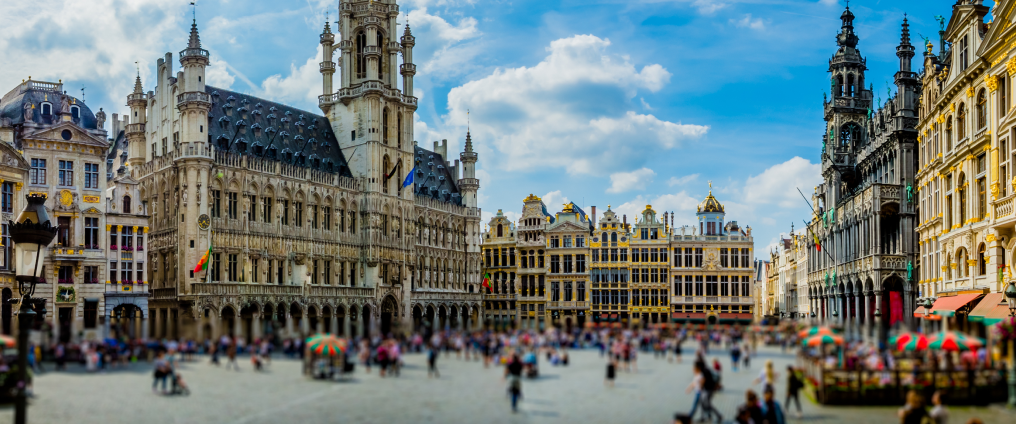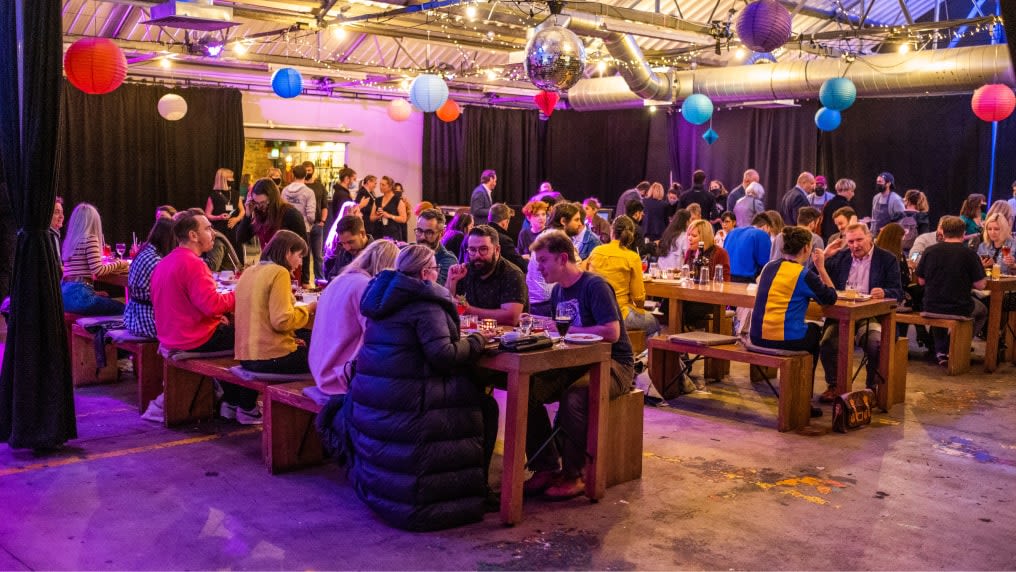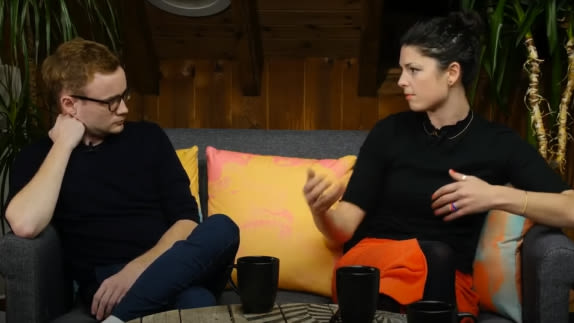The Brussels Regional Programme for a Circular EconomyCircular EconomyA systems solution framework that tackles global challenges like climate change, biodiversity loss, waste, and pollution. It is based on three principles, driven by design: eliminate waste and pollution, circulate products and materials (at their highest value), and regenerate nature. (BRCPE), commonly referred to as Be Circular, is Brussels’ central circular economy initiative from which all other circular economy activities emanate. It is designed to harness the opportunities presented by a circular economy, including reconciling economic and environmental objectives, supporting local production, optimising land use and integrating transportation requirements. Key drivers were the desire to stimulate innovative economic activity, create new jobs, and improve the quality of life for Brussels’ citizens.
Time frame
Be Circular is a four-year initiative, launched in 2016.
Focus areas
The initiative focuses on five key economic sectors: retail, logistics, waste and resources, food, construction, and the built environment.
Core team & external participants
Four agencies and three governmental departments are involved at a strategic coordination level. At implementation level a core team of 15 coordinators has been designated across the different regional administrations.
Alongside the core team, close to 200 people from over 90 different public, private and non-profit organisations representing multiple sectors are also part of the Be Circular initiative. These participants act as thematic coordinators, leaders, partners, and experts in particular areas. This inclusive approach has created a strong sense of ownership and helps ensure the initiative is resilient and systemic.
Finance
To date, a yearly budget of approx. EUR 13 million is allocated byBrussels’ regional government.
Outcomes to date
In the first years of Be Circular:
More than 220 companies have been educated and supported in the implementation of circular economy approaches
EUR 8.3 million has been granted to 139 business or research projects
Over 1,400 individuals have been trained through the education measures
New collaborations between public agencies and enterprises
Be Circular received the 2016 Regional Innovation Award from the Assembly of European Regions, and in 2017 was presented with the Eurocities Innovation Award.
The journey
Origins
Be Circular is built on the experiences of the Brussels Employment-Environment Alliance (EEA) collaborative initiative. The EEA ran from 2010 to 2014 with the aim of uniting environmental goals with economic opportunities. Following this initiative, three successive milestones led to the emergence of Be Circular:
A highly positive participant review of the EEA initiative
An urban metabolism study that assessed material flows within Brussels
The creation of Brussels’ Circular Economy Roadmap
Launch
In March 2016, Be Circular was launched by three Brussels’ Ministers. The Ministers of:
Housing, Quality of Life, the Environment and Energy
Economy, Employment and Vocational Training
Waste Collection and Treatment and Scientific Research
These portfolios are reflective of many of the policy areas that can enable and benefit from circular economy implementation. The Be Circular initiative works to unite them in an integrated strategy. The three ministries are supported by four public agencies who coordinate the Be Circular initiative:
Bruxelles Environnement (environment agency)
Hub.brussels (business support agency)
Innoviris (innovation and research agency)
Agence Bruxelles-Propreté (waste collection agency)
Learning from the EEA participant evaluation, Be Circular launched with a strong vision and political guidance, whilst preserving the highly inclusive approach - in this way combining top-down guidance with bottom-up insights and engagement.
Deciding the focus
Initially, the participants, who include EEA participants and new organisations, were consulted on a bilateral basis by the governmental agencies.
They were then invited to working groups, where they pooled their sectoral expertise and refined the vision and objectives for the city. Five focus areas were identified based on need and opportunities and the vision was translated for each: retail, logistics, waste and resources, food, construction, and the built environment.
From these five focus areas, participants identified transition measures of which 111 were approved by the ministers, ranging from the running of pilots, to new policies, tools and testing business models. Many have been funded from the Be Circular budget and after almost two years of implementation, 20% have been completed and only 12% are yet to begin.
The measures below showcase the diversity of angles considered, from enterprise support, to policy development, training, and academia:
Enterprise support measures
Be Circular – Be Brussels enterprise call offers advisory, financial and marketing support to entrepreneurial circular economy projects that are technically and economically feasible, and beneficial for local employment. An annual call for projects is issued with a budget of approximately EUR 1.5 million available to those that meet the criteria. Supported projects, of which there were 60 in the first two years, are publicly celebrated as Be Circular Laureates. Other measures also focused on supporting businesses, from coaching services to a business incubator, as well as a Circular Economy cluster CircleMade.Brussels and Innoviris’ living labs for circular economy research projects.
Policy development measures
The Circular Regulation Deal, supported by a policymaker secretariat, brings together private and public sector actors in topic-specific workshops to identify legal and administrative barriers to a circular economy transition and set up work plans to remove them. Topics for discussion range from the use of space and buildings, to the designation of waste. This measure is supported by legal and administrative experts.
Training measures
The Circular building training tools offer circular economy education modules for Brussels and construction workers. They are run by the Brussels training centres CDR-BRC and EFP as the MODULL 2.0 and BRIC projects.
Academia measures
An academic chair in urban metabolism & circular economy was created at the Brussels Free University to link private and public Be Circular participants with academia. It also allows urban metabolism studies to be integrated into the evolving strategy.
Measuring progress
In return for project funding, participants record their progress on the Be Circular ‘stakeholder platform’, a centralised management tool. Progress metrics include various elements such as:
Number of businesses engaged,
Number of participants trained, supported and employed.
Progress is discussed at quarterly meetings between all the Be Circular thematic coordinators (those who coordinate a specific area such as construction, public procurement, training) and every 18 months the Be Circular Steering Committee reviews progress alongside Be Circular budget reviews. A mid-term and a final evaluation report will be made publicly available. As part of this, Be Circular coordinators are looking to develop indicators that report on the wider economic, environmental and social outcomes.
Reflections
Using circular economy principles to support and spark circular innovations for a thriving local economy and job prospects.
The city government’s recognition and endorsement of circular economy, through the Be Circular initiative, has played an important role in giving entrepreneurs and businesses the confidence and momentum to apply new ways of operating, and opened up additional networks and partnerships.
Raising awareness and building capacity by using an iterative, inclusive and collaborative approach to programme design.
The Be Circular initiative has strived to remain dynamic and open to innovation as learnings are assimilated. The inclusive, collaborative approach, coupled with clear political endorsement, has worked to strengthen engagement and commitment with the initiative. As awareness of the opportunities and benefits of a circular economy has grown, the approach has also created a climate of cross-cutting innovation.
Keeping the initiative moving forward through central coordination.
Reaching consensus amongst multiple actors can be time-consuming, and the administration required to manage multiple factors comes with its own challenges. The creation of a central coordinating committee, made up of the three ministries and four public agencies, has helped to manage this, track progress and maintainmaintainKeep a product in its existing state of quality, functionally and/or cosmetically, to guard against failure or decline. It is a practice that retains the highest value of a product by extending its use period. momentum.
Engaging internationally and in peer networks to share resources and best practice.
Brussels partnered with UN Environment to be a pilot city within GI-REC, a collaborative platform provided by UN Environment to help cities develop resource efficient economies. The engagement supports inter-city knowledge exchange and has provided Brussels with a deeper material flow analysis.
For more information
Website: www.circulareconomy.brussels
Contact: info@circulareconomy.brussels
This case study is part of Circular economy in cities, Ellen MacArthur Foundation






